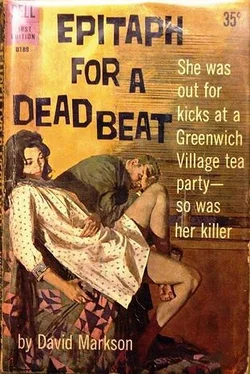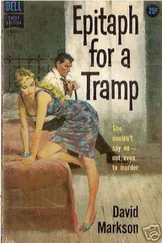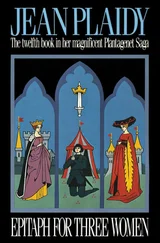She shrugged, then leaned across. After a second she held out the blue cardboard envelope. “Isn’t this quite against the law? Or no, you had a key, didn’t you?”
I didn’t answer her, scowling at the pass book. Audrey Grant was leaving an estate of $4,100, but that was not what I had wanted to know. What I cared about was that she had made a deposit of $1,852 on July tenth, the same day on which Josie Welch had put the identical sum into her own account at another bank.
Ulysses Grant had told me that Audrey would have gotten whatever cash was left by Elizabeth Muller Grant. She’d only gotten half. Unless I was way off base, the matching deposits meant that she’d split the inheritance with her half-sister, the child Elizabeth Muller had sent out for adoption at birth.
It tied in with what Grant had said about his estranged wife being visited by two girls, and it also tied in with what Don McGruder had told me about Josie Welch and her hard Kansas childhood. I’d remembered the date of Josie’s deposit when Grant had mentioned that Elizabeth Muller died in early July, but it had taken a second killing to make me put two and two together. Except I still did not have the foggiest notion what any of it meant.
I put back the bank book, checking my watch. Margaret Constantine did not know it, but we would be having company any minute. I decided I’d rather talk to her husband before the police at that.
Mrs. Constantine did not know that either. She had been watching me, leaning backward with her weight against her arms. Now she lowered herself to her elbows, lifting one of her crossed legs slightly. That shoe slipped off and dangled from her toes.
There was an amused twinkle in her eyes. In another second she swung around and hoisted both legs, letting both shoes tumble to the floor. It was an obvious play, but she could even be obvious with style. She blew aside some of that fantastic hair when I leaned over her.
“Anything a girl can do to protect the family business, is that it?”
I was wrong. One of her hands shot upward and clamped itself around my neck, and she jerked herself toward me. “You said they were both at a party. If they won’t be back, we — there’s time—”
I was so wrong it startled me. Before I knew it her legs were actually thrashing. The dame was compulsive as a hare.
It didn’t have to mean much, since a sweaty plumber could get the same offer from half of the authentic heiresses in town. But I’d been wondering for twenty minutes how deep that sophistication really ran. “Call me darling again,” I told her.
“Oh, yes. Darling, darling—”
I pursed my lips, braced above her. “One more thing.’’
“What? Yes, anything—”
“Did Constantine marry you right out of the racket, or did you get the retread job before you ran into him?”
“Did I get—? It took a second or two. Then she sprang back onto her haunches like an animal. “Why, you lousy two-bit son of a—”
I laughed, straightening. “That’s pretty much what I wanted to hear,” I told her.
She spat something else in substantiation, snatching up her shoes. She didn’t stop to put them on. No more composure, no more composure at all.
“If you’ll fetch your fancy coat, ma’am,” I called after her, “we can go see Connie now.”
I glanced into the kitchen and the other bedroom on the way out, having a tardy thought about something. Probably it just indicated that she was a neurotic housekeeper, even drunk. But there was no trace of that bottle Dana O’Dea had been home alone with all afternoon.
Mrs. Constantine had fetched the coat. We were climbing into the Austin Healy, as amicably as two hounds after a one-bone meal, when a patrol wagon pulled up sharply and double-parked three or four car lengths behind us.
We discussed philosophy and religion on the way to Sutton Place. When we passed 23rd Street I said, “What shall we talk about — Existentialism?” Ten blocks later I said, “How about the Dead Sea Scrolls? Surely you have an opinion about the Dead Sea Scrolls?” Mrs. Constantine found it all so stimulating she ran three stoplights getting home.
When she finally swerved over to the curb it was in front of a tree-sheltered riverside apartment building where the rents would be as high as any you could pay in New York, or in the world. She left the motor running for a dignified, elderly doorman who wished her good evening by name. I followed her under a canopy and through a richly mirrored lobby, then waited while she pressed for an elevator. The elevator made as much noise coming down as a wounded moth. Its operator was as old and courtly as the doorman. They were both retired bank presidents, supplementing their pensions. He took us up three flights, and then we stepped into a private foyer instead of a corridor.
That meant the Constantines had at least half a floor. Mrs. Constantine discarded her coat across the carved mahogany arm of a towering antique chair, then led me stiff-lipped through an ornate archway into a living room.
King Farouk would have a bigger one. It ran about seventy feet back to where you would see the water, and that whole wall was glass, partly obscured by ungathered drapes. There were tall ferns, and there was a lot of whatever kind of furniture it was. Only one small lamp was burning, and everything was luxurious and dark and furry, like vespers at a mink farm. She stopped in the middle of it all.
Her eyes were still giving off sparks, but I didn’t grin. Maybe it was the sight of all that indulgence, but she wasn’t funny anymore.
“My husband has a slight cold. If you’ll wait, it will be a minute.”
I nodded, watching that orange mane disappear through another arch. I supposed hubby would have a study in there. Sure. He’d be camped in a contour chair in front of a twenty-inch screen, with a nasal spray in one hand and a notebook fall of Johns in the other. I went across to the windows. Dutiful Margaret would stroke his hot little forehead before she told him about the nasty mans out front. Poor darling, has it been a trying evening with the runny nose? Would baby like a hot toddy before he works out the girls’ schedules for tomorrow night? I looked down at the black sweeping river, but it only made me choleric to think of the sort of people who could afford to run it through their back yards.
So all of a sudden I was getting righteous. I was a Puritan. So the lady was wrong, I didn’t do divorce cases. So what? What business was it of mine where the Constantines got the dough to pay the ice man?
Anyhow, I already knew how Mrs. Constantine paid the ice man. There was a bar in a corner to my left, with a single bottle of Chivas Regal on its mosaic top, and I started over that way.
I hadn’t gotten across when he came striding into the room behind me. He was bellowing.
“Harry Fannin! Harry! Why, you old son of a gun, no wonder I never made the connection. The goddam papers said Henry—”
I must have stared at him witlessly for the first second or two. He was my height, but he would have weighed in at close to sixty pounds more than I did. That meant he had put on at least thirty in the dozen years since I had seen him. Oliver Constantine, left tackle.
“Harry, you old renegade! Why, if fid known you were in New York I would have looked you up years ago!” He was pumping my right hand with his own, which was the size of a catcher’s mitt, and his left was crushing my shoulder. “The best damned halfback in that whole crop of sophomores. Why, by George, I remember one time in scrimmage you ran right over me. Took me out so hard I almost didn’t start the Illinois game. Well, I’ll be damned—”
I got rid of the hands, shaking my head. We weren’t quite long lost brothers, since I’d never really said more than two hundred words to the man. “I never thought of it either,” I told him. “You made second-string All-Conference that year.”
Читать дальше












